Did you know that most store-bought olive oil is not really olive oil at all? Here's everything you need to know about extra virgin olive oil nutrition, as well as how to get your hands on the best TRUE extra virgin olive oil there is, Kasandrinos olive oil.
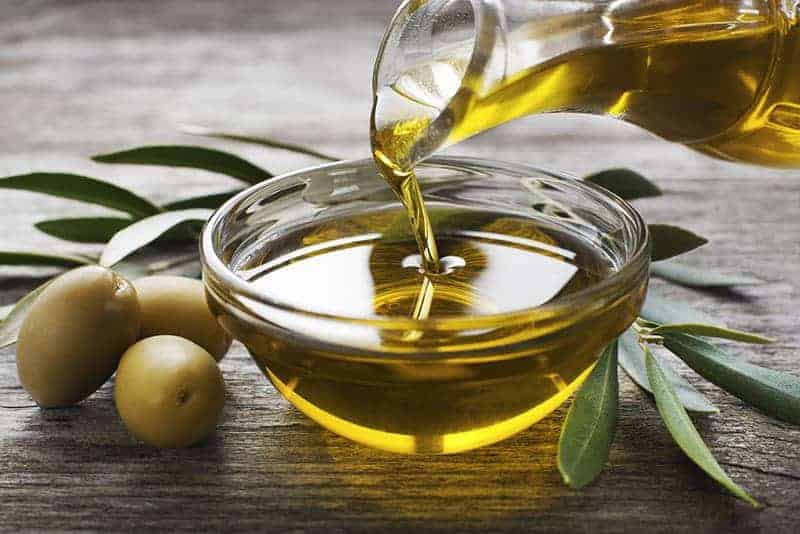
Have you ever had real, pure, olive oil? My guess is that you haven't, and you don't even know it.
CBS 60 Minutes did a piece on what the Italians call the ‘Agromafia’ - the adulteration and cutting of so-called Italian olive oil, which is estimated to bring in a whopping 16 billion dollars per year.
I've known for years that most olive oil in the grocery store has been cut with other oils, which was why I first started buying Kasandrinos olive oil. My first shipment of it arrived in June of 2014, and it was true love at first taste. I've never looked back at any other olive oil since.
But the Mafia? Seriously? What could the Mafia want with olive oil? Don't they deal in drugs and crime and hit men? Apparently, they also deal in the food industry. And at 16 billion dollars a year, I can't say I blame them.
What is Extra Virgin Olive Oil?
Extra Virgin Olive Oil, or EVOO for short, is the first pressing of the olive harvest.
It's when the olives are picked just as they ripen, and as the CBS reporter in the video says, "It's so rich, and you don't have to put any other spice on your food. You can see why the Greeks and the Romans developed this food, because it really is the food of the gods. It looks like nothing you've ever seen before, and it tastes like nothing you've ever tasted before."
And he is so right. That is exactly how I would describe Kasandrinos olive oil.
What Real EVOO Tastes Like
The olive oil you buy in the store is mostly neutral. Sure, it has a bit of flavor to it - it's strong enough that you don't want to make mayo out of it, as it would overpower the mayo.
But I'm here to tell you - it tastes nothing like REAL extra virgin olive oil.
Real olive oil is spicy. It's peppery, and a little bitter. And most importantly, it's delicious. It has a flavor profile that will surprise and delight you the first time you taste it.
I can't believe I just typed the words "flavor profile," but I did. I'm officially a foodie nerd.
Extra virgin olive oil nutrition
In addition to not knowing that their EVOO is being cut with other oils, most people don't know a whole lot about extra virgin olive oil nutrition.
There are some that believe that extra virgin olive oil nutrition benefits are best preserved by always using the EVOO cold, and never heating it.
Various reports have shown that heating EVOO can break down the oil and limit the nutrients you can absorb from it. There are others that say you can cook with olive oil up to a medium-high heat, as long as you don't let it burn.
Here's my personal take on extra virgin olive oil nutrition - it's better to use it cold, but the world won't end if you cook with it. As long as you are using the REAL THING and not the fake processed oil, you'll be fine.
I once read a great article that talked about how all true cooking fats should be solid at room temperature (coconut oil, bacon grease, lard, tallow, etc.)
Anything that's liquid at room temp shouldn't be heated for maximum nutritional benefits. (Remember, this does not include your highly processed oils like canola, vegetable or rapeseed oil - those are never good for you, ever!)
Keep in mind that extra virgin olive oil has a very low smoking point (usually between 325° and 375°) so when you get it too hot, it starts to burn.
Katja over at Savory Lotus wrote this great post on 5 Reasons To Stop Cooking With Olive Oil which will give you a bit more insight into why you might want to keep that olive oil cold and use it for salad dressings and drizzles on your veggies once they come out of the oven.
When I'm doing high heat cooking, I stick with this coconut oil or pork lard/animal fats from EPIC, and I use this palm shortening for frying.
And when I'm using olive oil - you guessed it. Kasandrinos olive oil is the only one that will do.
How your olive oil is being cut
Olive oil fraud has gone on for hundreds of years. The food supply chain is so vast, global, and lucrative, it's incredibly easy for olive oil to be adulterated.
According to the 60 Minutes piece, the olive oil you're purchasing in the store is made like this:
They take a bit of olive oil (or don't), then combine it with a seed oil like sunflower oil, add a few drops of chlorophyl to give it color, and some beta carotene to give it some fruitiness.
Yeah, you read that right. There's probably chlorophyl in your "olive oil." Gross.
In this video from Dr. Mercola, "tests reveal anywhere from 60 to 90 percent of the olive oils sold in American grocery stores and restaurants are adulterated with cheap, oxidized, omega-6 vegetable oils, such as sunflower oil or peanut oil, or non-human grade olive oils, which are harmful to health in a number of ways."
Even "extra virgin" olive oil is often diluted with other less expensive oils, including hazelnut, soybean, corn, sunflower, palm, sesame, grape seed and/or walnut.
These added oils won't be listed on the label, and most people will not be able to discern that their olive oil is not 100 percent pure.
Chances are, you've been eating poor-quality, modified, and chemically processed olive oil so long, or you've never experienced the taste of a real, high-quality olive oil to begin with, that you don't even know there's something wrong with it.
In an article titled Your Extra Virgin Olive Oil is Fake, we learn that a number of people were arrested for adding chlorophyll to sunflower and soybean oil and selling it as extra virgin olive oil, both in Italy and abroad.
The blended oil is then chemically deodorized, colored, and possibly even flavored and sold as “extra-virgin” oil to a producer. And here's where I learned something new- if you find that the brand of olive oil you're buying is fake, it's not actually the brand that's pulling the wool over your eyes - it's their suppliers.
And the brands themselves may not even know what's happening.
What you can do about it
- Educate yourself. In the book Extra Virginity: The Sublime and Scandalous World of Olive Oil, you can learn all about both the history and the future of olive oil. If you're not up for a full book on the topic, check out this New Yorker Magazine article from 2007 by the same author.
- Check your brands. This article outlines a study that was done where major brands were tested, and provides a list of those brands that were found to contain fake oils, and those that "passed the test," although they don't quite outline exactly what that test was.
- Read your labels. If your olive oil says, "Made in Italy," it means it was packaged there, but does not necessarily mean it was produced there. The label should also indicate a specific city where it was made, and the date it was bottled.
- Invest in real olive oil, and once you do, store it properly. According to the Kasandrino's website, "olive oil should be stored in a cool, dark place away from light and heat. When olive oil is exposed to heat, light, and air the valuable nutrients in extra virgin olive oil begin to oxidize and it will begin to lose its fruit flavors. The best containers for olive oil are dark glass or a tin."
The best EVOO I've ever had
Kasandrino's Extra Virgin Olive Oil is the best extra virgin olive oil I've ever had. When it arrived for the first time, I poured a bit onto a spoon and tasted it, and made Brandan do the same. We were shocked.
I love Kasandrinos for a couple of reasons. First, it's a small, family owned business. This is Tony and Effi, the brother and sister team behind the business.
When they've been sold out of oil in the past and are waiting on a new batch to be harvested, processed and shipped out, the emails and updates come directly from Tony. You can't get more personal than that.
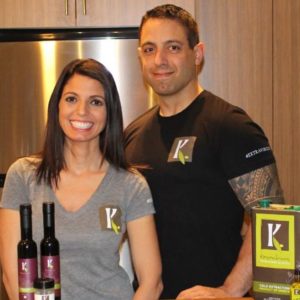
Second, they provide more testing and documentation on their website than you could probably ever care to read. The point? They make sure everything is tested properly, and are completely transparent about those test results. You know exactly what you're getting.
Some basic math
Third, it's completely and totally reasonably priced. I'm going to jump into a bit of math here for a minute, but just stick with me.
Remember, the less you pay for olive oil in the grocery store, the less likely it's authentic. If you're paying $7 or $8 a bottle, it's probably not Italian and it's probably not EVOO.
I checked for pricing of an average olive oil that most people probably have access to at their local grocery store: Bertoli. My local Harris Teeter sells this in a 17 fl oz bottle, or 500 ml, for $8.99 - which translates to a price of 0.53 cents an ounce.
Kasandrinos sells the same size bottle, 17 fl oz, or 500ml, for $24.99 - which translates to $1.17 an ounce. That's more than double what Bertoli is charging, but is much more on par with true pricing of REAL extra virgin olive oil.
Remember, that olive oil in your grocery store is likely not olive oil at all, but is probably some other form of olive oil, cut with chlorophyl and other chemicals.
Now here's where it gets good. That 500ml bottle is the same as a ½ liter.
Kasandrinos olive oil is also sold in a 3 liter can for $74.99. Three liters is 101 ounces, bringing the price down to just $0.73 an oz. Yeah, that's right.
Less than the price per ounce of that junk oil, all because you bought in bulk.
I buy their pack of 2 three liter cans for $100, and it lasts me a year, until they do their next harvest.
I store them in the bottom of our pantry, out of the sunlight, and they're already in a tin can, so they're not exposed to the light or oxidizing at all.
I keep a dark glass bottle on the kitchen counter, and refill it periodically from the cans when it gets low. The flavor never changes.
I know $100, or even $50 on olive oil might seem like a lot, but if you break down the math, it's cheaper than the grocery store, and you're getting the real thing.
And just for being one of my trusted readers, you can get 50% off your first subscription order, or 25% off your one time purchase order! Just use the discount code PS at checkout.
Here's to healthy hearts, family owned businesses, and fighting the Mafia like the crime ninjas we are!
I may earn a small commission off purchases made through affiliate links in this post from Amazon and other sellers. This helps me continue to run the blog and keep providing you fresh content. Thank you for your support!



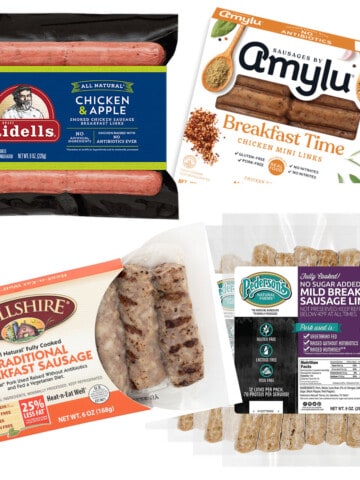
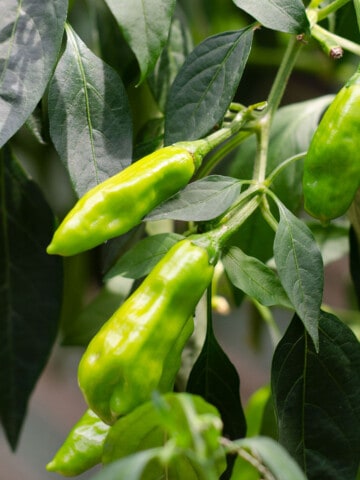
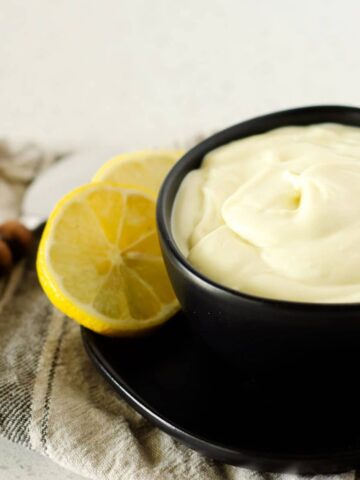
Barbara
I'm lucky enough that while my godmother was alive we'd get our olive oil from her, directly from Kalamata in Greece. Since she passed we get it from a neighbor of hers. I totally agree that once you've had real olive oil you'll never go back to store bought again.
Jessica
Oh, that sounds amazing! It's such a game changer.
Sydney Evans
If you run out of your favorite (and with you being a Charleston girl like me), try Olinda Olive oil. Grown in California on a family owned farm, and pressed here locally!
Kim
The 60 minutes had said to only buy olive oil from California.
Jessica
Hi Kim! I'm not sure which 60 minutes piece you're referencing. The one I linked to was a piece on a man who is fighting the people who are cutting the olive oil. The olive oil I've recommended here and that I use in my own kitchen comes directly from the family that harvests and presses it. It's delicious, they are open about their testing process, and it's well worth it. Wherever you buy from, just make sure you're checking the source!
Ken
Good article and thanks
I’ve done a little research on EVOO because I’ve learned over 40 years ago to not trust the fedreral, state and corporate mafia and here’s why. It started when I read about so called “whole wheat bread” labeled and marketed as such. (Of course personal computers weren’t thought of by us back then) ok, when I learned that FDA legal language for what constitutes whole wheat bread was in favor of big money of course not for us consumers. It said something like this: if the bread contains at least 20% wheat then it can be called whole wheat bread. This is why you can squeeze a loaf easier than a marshmallow. Also the FDA language for non-gmo labels is not recommended however, if the label is false, the FDA mafia won’t Persue action. Now back to EVOO. I read that olive oil is a fruit and as such cannot be shipped from overseas and stay fresh all the way to another country because it’s perishable. California grow olives and ship (supposedly) EVOO. Please reply?
Jessica
Hi Ken,
You are right, labeling is a tricky game! As for shipping olive oil, I don't know a lot of details about that. From what I do know, it has to be shipped in containers that light cannot get through, and that it won't get jostled around a lot in. I order this olive oil and it ships from Greece. It arrives here in the states in perfect condition in tin cans and is never rancid. They do harvest and ship fairly quickly, so it's not sitting around for a long time. I think you'll find if you order some, you'll be surprised at how different the flavor is from the olive oil sold in the regular grocery store!
Patty Miller
What about Braggs EVOO? Of course they say it's only from Kalakaua olives but how to be sure.
Jessica
Hey Patty! The catch is that with the larger brands, they're almost all being infiltrated. Unless it's coming direct from a family farm to you, the way that Kasandrinos does, it's likely that the oil is cut, unfortunately.